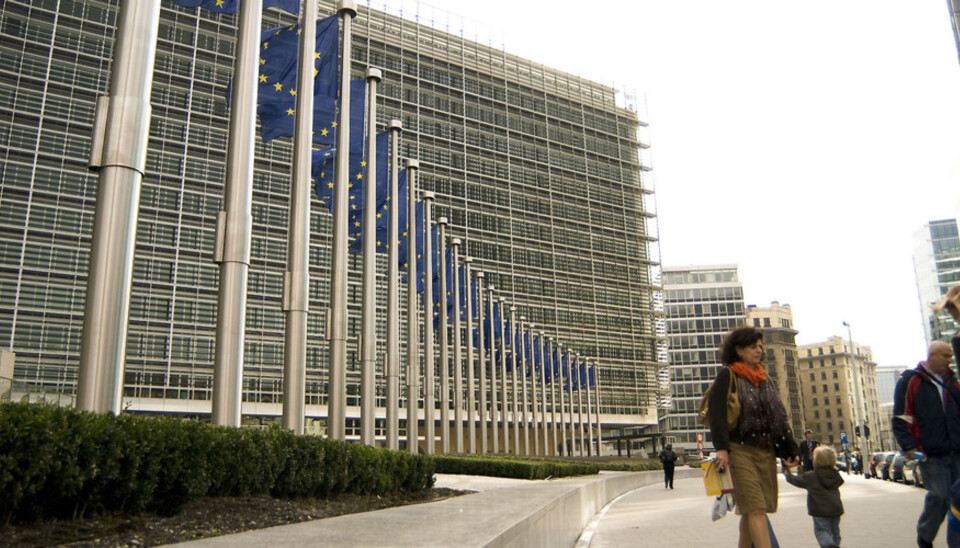
Ottersen: Timely ambitions in the Lamy report
The ambitions embedded in the Lamy report are both welcome and timely. In a period where Europe is strained by turbulence and political unrest, research and education should be strengthened significantly, writes rector at University of Oslo, Ole Petter Ottersen.
OBS! Denne artikkelen er mer enn tre år gammel, og kan inneholde utdatert informasjon.
Some days ago the «High Level Group on Maximising the Impact of EU Research and Innovation Programmes», led by Pascal Lamy, published its vision for the next Framework Programme (FP9).
The Lamy report argues for a doubling of the budget of post-2020 EU research and innovation. Now it is incumbent on the political decision-makers to follow up.
The ambitions embedded in the Lamy report are both welcome and timely. In a period where Europe is strained by turbulence and political unrest, research and education should be strengthened significantly. International academic collaboration forges strong links across borders, and student exchange builds trust and tolerance. Just as importantly, research and education are required to grapple with the challenges we see in the Europe of today. Simply put: there is a need for the deeper understanding that only research and academic exchanges can foster.
The Guild of Research Intensive Universities is spot on when it in its response to the Lamy report includes a reference to Fridtjof Nansen – the Norwegian arctic explorer and Nobel Peace Prize laureate of 1922. The Europe of 1922 was very different from the Europe of today, but the demand for understanding is the same. This is an excerpt from Nansen’s acceptance speech:
«What is the basic feeling of people all over Europe? There is no doubt that for a great many it is one of despair or distrust of everything and everyone, supported by hate and envy. ….. No future, however, can be built on despair, distrust, hatred, and envy. The first prerequisite, surely, is understanding - first of all, an understanding of the cause and the nature of the disease itself, an understanding of the trends that mark our times and of what is happening among the mass of the population. In short, an understanding of the psychology of every characteristic of our apparently confused and confounded European society.»
In the context of Europe anno 2017, the quest for understanding can be strengthened by seeking truth and trust through research and education. We need research to identify the root causes of the inequalities in health and wealth that we see in today’s Europe. We need research to build new and green economies, and we need research to implement the Sustainable Development Goals that must be center stage in any vision of tomorrow’s Europe. Research must not be narrowly constrained to new technologies, but must address how technologies are absorbed and put to good use by the individual and the society at large. Technologies will not lead to progress if they are introduced to societies that are ill-equipped to handle them. Certainly there is a need for the natural sciences, but we also need the insight that only the humanities and the social sciences can offer. Thus, we should not only ask how to make our cities “smart”, but how they could be made to be both «smart and just».
Close on the heels of the ambitious Lamy report we learned that the EU council proposes cuts to the 2018 budget for funding of research and innovation. The budget for 2018 will be negotiated with the European Parliament. If adopted, there will be reductions in the proposed 2018 budget line for Horizon 2020. The programme’s 2018 budget would be just 2.56 prosent higher than in 2017 – far below the 7.31 prosentincrease originally proposed by the Commission, and far below its average growth rate of 6.5 prosent since 2014. As I see it, this would run counter to what stands as the major conclusion of the Lamy report and would be at odds with the needs of present-day Europe. In a Europe hurt by distrust and division the instinctive response should be to bolster the research budget, to the extent originally proposed. Education and research are much of the glue that holds Europe together. Now is not the time to weaken our ambitions.
Just as importantly, research and education are required to grapple with the challenges we see in the Europe of today.
Ole Petter Ottersen
The Guild’s response to the Lamy report. As pointed out above, the Guild of Research Intensive Universities has published its response to the Lamy report
Essential points:
- The Guild agrees that more resources must be dedicated to the European Research Council and the Marie Skłodowska Curie Actions and calls for doubling of their budgets.
- The Guild emphasizes that universities are critical actors in the innovation ecosystem in all parts of Europe and look forward to engaging with the European Innovation Council in how Europe’s innovation ecosystem can be strengthened.
- The Guild agrees that the fundamental challenges facing our societies should be addressed through missions, framed by the Sustainable Development Goals (SDGs).
- The Guild welcomes a closer link between research, education and innovation to support knowledge, creativity and citizenship but requires more evidence to support the notion that we need a ‘fundamental reform’ of education.
- The Guild welcomes the High-Level Group’s urging to link closely structural and research funding, and agrees that these should closely align from the beginning. The participation gap between high- and low-performing regions must be reduced.
- The Guild welcomes more support not only for opening up our research results to citizens, but also for genuinely engaging the public in our results.
- The Guild agrees that we must strive to retain ‘full and continued’ integration of the UK in the next framework programme despite Brexit.
Les også: Universitetsrektorene i Norge har respondert på Lamy-rapporten (Norwegian)
(This blog is first published on the blog for rector of University of Oslo, Ole Petter Ottersen)






Logg inn med en Google-konto, eller ved å opprette en Commento-konto gjennom å trykke på Login under. (Det kan være behov for å oppdatere siden når man logger inn første gang)
Vi modererer debatten i etterkant og alle innlegg må signeres med fullt navn. Se Khronos debattregler her. God debatt!